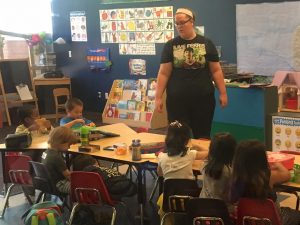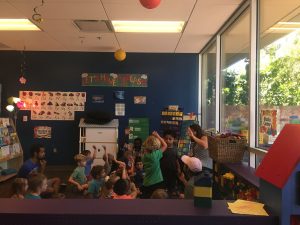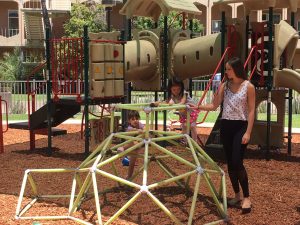- Slug: BC-CNS-Kids count. About 500 words.
- Photos and graphics available (thumbnails and captions below)
By DEVIN CONLEY
Cronkite News
PHOENIX- Arizona ranks among the five worst states for children’s well being in education, health, economics and family and community matters, according to the Kids Count annual report.
Arizona was ranked 46th in the country, the Kids Count report from the Annie E. Casey Foundation says.
Nearly 400,000 Arizona children live in “high-poverty” areas. And six out of ten of Arizona’s three- to four-year-olds are not in preschool, with a child psychologist saying that means their learning is delayed.
Each category ranked 10 percent worse than the rest of the nation, according to the survey.
“We should be doing much better for our kids,” said Dana Wolfe Naimark, president and chief executive of Children’s Action Alliance. “When children are growing up with such instability, that affects every aspect of their lives.”
Educating Arizona’s children is the root of the problem, making it the biggest area for improvement.
“If I only had to pick one thing that would change our future that would be giving more children access to high quality preschools,” Naimark said.
The preschool problem
About 63 percent of children ages three and four are not enrolled in preschools, the report says.
Dedicating time to commute from home to preschool to work, plus the high cost, push preschool down the list of a parent’s priorities, according to Anne Kupfer, director of Child Study Lab, a preschool and research program at Arizona State University.
“Its out-of-pocket cost,” Kupfer said. “You also need someone to bring the children to the program. It’s all very hard to do.”
Day care is less expensive than preschool but doesn’t necessarily focus on teaching kids academics or how to socialize with others, Kupfer said.
“The longer you wait the more difficult it is for that child to learn those self-regulation skills that they’re going to need and it affects their self esteem,” Kupfer said. “They need to feel comfortable and confident in terms of who they are.”
That’s where preschool comes in.
“What it’s designed for is that they get use to the classroom environment so they know what a classroom looks like,” Kupfer said. “We teach them the routine of school.”
The Arizona answer
Children who have access to early educational programs can excel later in their academic careers and experience a better quality of life, according to a report by the U.S. Department of Education.
“It’s important because, in order to predict academic success later on in life, we know, via 40 years of research, that children need to be exposed to peers,” Kupfer said.
Naimark, of Children’s Action Alliance, agrees.
“If more kids have access to that high-quality, early education it will improve educational achievement all throughout the spectrum,” Naimark said. “And it will help close that achievement gap. I’m concerned the problems only going to get worse if we don’t look at the data.”
^__=



embed code: <script id=”infogram_0_arizona_children_not_attending_preschool” title=”Arizona children not attending preschool” src=”//e.infogr.am/js/dist/embed.js?ITq” type=”text/javascript”></script>